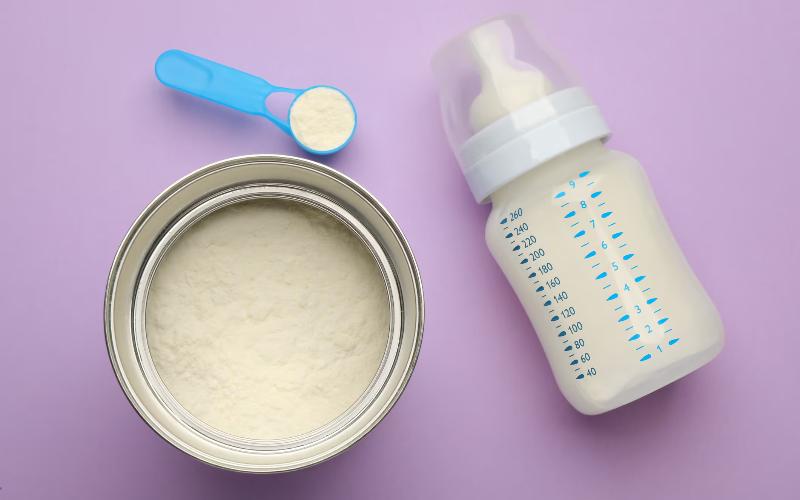Will there be golden times for dairy?
Below you find a short interview which is related to a presentation I gave recently. Any feedback from you on this is highly appreciated.

INTERVIEW: Dr. Hemme, you spoke of the "GOLDEN TIMES FOR DAIRY"?
HEMME: From 2000 to 2022, demand and production of dairy products worldwide increased by ca. 40%. The world market price for milk increased by 60% during that period. Looking back, measured by the growth indicators, we can speak of golden times.
Are the times of growth over?
HEMME: The IFCN forecasts in the Pro-Milk scenario assume that global demand for dairy products will continue to rise by 2050, by a further 40%.
40% more demand - why do you really believe that?
HEMME: Yes. Demand is increasing because the world population is increasing and so is per capita consumption. We have seen declining figures for years in terms of drinking milk consumption, but these are more than compensated for by the growth in demand for other dairy products.
How does that fit in with vegan trends?
HEMME: There are loud activists with strong messages, but so far we have not seen a decline in dairy demand. Interestingly, per capita consumption of dairy products in the EU and the USA has not decreased in the last ten years, but has increased by around 10%. In poorer countries, we see significantly higher growth rates in some cases, provided there is enough income.
How to produce +40% in times of climate change, more regulations, etc?
HEMME: 40% growth means that by 2050 we would have to produce four times the annual amount of milk produced by the USA. This is certainly difficult to achieve given the current political conditions and price levels.
However, the IFCN's forecasts assume that milk prices will rise. Farmers will benefit from this. In many regions, dairies must prepare for more competition for the raw material milk. This is a paradigm shift that the dairy industry should prepare for.
How likely do you think it is that your forecast will actually come true?
HEMME: Of course, there is considerable uncertainty in all forecasts. But I suspect that we are not entirely wrong. Proof of this is that the milk volumes we had forecast for 2025 in 2011 had already been achieved in 2021.
For me, good forecasts are a continuous process. At the IFCN Dairy Research Network, this is done through annual updates and a continuous dialogue with dairy industry players.
How can farmers and dairies benefit from the global growth in milk demand?
HEMME: In order to benefit from growth, the respective region needs future-proof milk production systems.
These systems should, very generally speaking, meet the following criteria simultaneously:
1. good for the planet,
2. attractive for the next generation of farmers,
3. accepted by consumers.
This is anything but easy, but it will be worth it.
Source
HEMME: From 2000 to 2022, demand and production of dairy products worldwide increased by ca. 40%. The world market price for milk increased by 60% during that period. Looking back, measured by the growth indicators, we can speak of golden times.
Are the times of growth over?
HEMME: The IFCN forecasts in the Pro-Milk scenario assume that global demand for dairy products will continue to rise by 2050, by a further 40%.
40% more demand - why do you really believe that?
HEMME: Yes. Demand is increasing because the world population is increasing and so is per capita consumption. We have seen declining figures for years in terms of drinking milk consumption, but these are more than compensated for by the growth in demand for other dairy products.
How does that fit in with vegan trends?
HEMME: There are loud activists with strong messages, but so far we have not seen a decline in dairy demand. Interestingly, per capita consumption of dairy products in the EU and the USA has not decreased in the last ten years, but has increased by around 10%. In poorer countries, we see significantly higher growth rates in some cases, provided there is enough income.
How to produce +40% in times of climate change, more regulations, etc?
HEMME: 40% growth means that by 2050 we would have to produce four times the annual amount of milk produced by the USA. This is certainly difficult to achieve given the current political conditions and price levels.
However, the IFCN's forecasts assume that milk prices will rise. Farmers will benefit from this. In many regions, dairies must prepare for more competition for the raw material milk. This is a paradigm shift that the dairy industry should prepare for.
How likely do you think it is that your forecast will actually come true?
HEMME: Of course, there is considerable uncertainty in all forecasts. But I suspect that we are not entirely wrong. Proof of this is that the milk volumes we had forecast for 2025 in 2011 had already been achieved in 2021.
For me, good forecasts are a continuous process. At the IFCN Dairy Research Network, this is done through annual updates and a continuous dialogue with dairy industry players.
How can farmers and dairies benefit from the global growth in milk demand?
HEMME: In order to benefit from growth, the respective region needs future-proof milk production systems.
These systems should, very generally speaking, meet the following criteria simultaneously:
1. good for the planet,
2. attractive for the next generation of farmers,
3. accepted by consumers.
This is anything but easy, but it will be worth it.
Source
Key News of the Week










